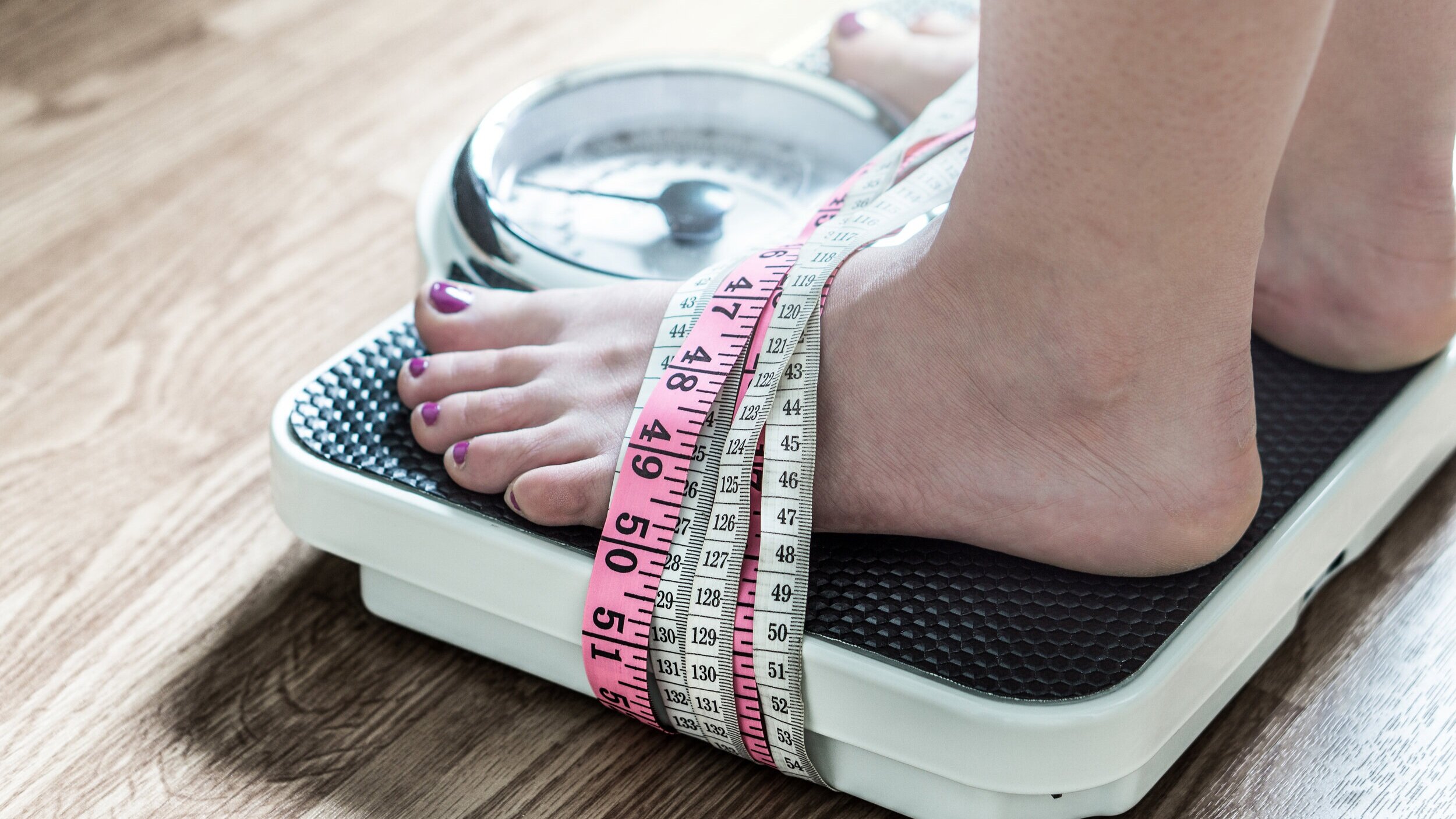I'm Exercising and Not Losing Weight!
Help! I’m so frustrated! I’m exercising and not losing weight!
Client: “I’m a little discouraged. I lost a dress size and my clothes fit better…”
Me: “Wow! That’s great! So, what’s the problem?”
Client: “I weighed myself this morning and I haven’t lost anything. In fact, I’ve gained two pounds.”
There are a lot of reasons for not losing weight even when exercising consistently. For my clients, the most common reasons are the following (and we’ll be focusing on final one for today’s post):
Not exercising enough. Some studies show that you need a solid hour of exercise every day to lose weight and maintain weight loss over time.
Overcompensating for workouts be eating too much. Exercise can make you hungry. Hungry humans have a tendency to eat more. Many people also falsely believe that exercise allows them to eat whatever they want. Simply not true.
Eating too much in general and/or poor diet. I’m not an advocate for long-term food tracking. However, it can be a very helpful tool in discovering holes in your nutrition, and patterns of behavior around food.
Stress and lack of quality sleep. We are over-stressed and under-recovered. The resulting shift in hormones can cause fat gain, especially around the midsection. Listen to this excellent podcast about how stress causes weight gain.
Medications. Certain medications can cause weight gain or inability to lose weight.
Menopause. It’s so fun to be a woman. Experiencing some weight gain during menopause is normal.
Being close to goal weight. The closer you get to a normal and healthy weight for your body, the harder it will be to lose more, and the slower it will come off.
Losing fat and gaining or maintaining lean muscle. This is what we’re going to discuss in today’s post!
You can lose body fat and your weight may remain the same.
You’re not losing weight, but here’s why it might not matter…
We need to change our focus from scale weight to body composition.
For ease of understanding body composition, we’re going to break the body down into two types of tissue: lean mass and fat mass.
Fat mass is exactly as it sounds. It is the amount of fat you have in relation to your total mass. Lean mass is everything else, including organs, bones, cartilage, tendons, and muscles.
Saying you want to “lose weight” is a misnomer because it doesn’t help you distinguish what you’re losing. Do you really want to lose bone and muscle tissue? I hope not. You want to lose fat, right? But your scale will never help you understand the difference.
My body is getting smaller, but I’m not losing weight…what’s happening?
In the client scenario above, she’s losing dress sizes, but her weight is not changing. In fact, if a client is close to her ideal body weight, exercise may cause her to gain scale weight…while dropping dress sizes!
The following photos demonstrate how it’s possible to lose a dress size without losing scale weight. I measured out one pound of marshmallows and one pound of lean beef. The marshmallows represent fat, and the beef represents lean body tissue. Look at the difference in the amount of space taken up by each.
On the left is one pound of ground beef. On the right is one pound of marshmallows. They weigh the same, but notice the difference in volume!
A pound of muscle does not weigh more than a pound of fat. But fat takes up more space than muscle. One pound of fat looks much larger than one pound of muscle. It’s like comparing a pound the pound of beef to a pound of marshmallows: there’s a big difference in how much space is taken up by the same weight of these two items.
When you train correctly, you will lose fat, but not muscle or other lean tissue. If you are lucky, you may even gain muscle and increase bone density! Unfortunately, your scale may tell you nothing has happened. Or, in some cases, you may gain some scale weight!
That’s why I encourage women to move away from regularly weighing themselves. Trust the fit of your clothing. If things are fitting better, you are achieving the holy grail of fat loss: losing fat and maintaining or gaining lean muscle!
You’re losing the fluff and keeping the rock-solid goods…it’s just that those rocks are dense!
Not losing weight might not be so bad…why you shouldn’t be afraid to gain muscle:
I understand how frustrating it can be to do everything right and not lose weight. As a society, we’ve shot ourselves in the foot by placing so much emphasis on a measure of progress that means virtually nothing in regard to the size or health of our bodies.
Unless you are very overweight or obese, you may not lose scale weight when you begin exercising! This focus on weight loss alone is a common cause for people to quit exercising altogether, because sometimes the results don’t show up on the scale.
If your body measurements are decreasing and clothes are fitting better, here are four reasons you should ignore the scale and not be afraid to maintain or even gain muscle:
Muscle is your metabolic engine. The more muscle you have, the more calories you burn, even while at rest.
Muscle creates a lifted and aesthetically pleasing figure. It is possible to “sculpt” your body by adding muscle in the right places. Your clothes will fit better overall.
Muscle makes you stronger and increases joint strength. Duh.
You can eat more. Not a lot more. But muscle is energy-demanding and requires fuel. This means that, even as you lose fat mass, you’re metabolic needs will remain the same or even increase. Whereas, if you just lose weight (which implies you lose both fat and muscle), your metabolism will decrease as a result of lost lean tissue.
Muscle is dense and compact. Adding muscle to your body will decrease your size, increases metabolism, and make you stronger…but none of this will register on your bathroom scale.
Exercise for the real benefits of exercise
Now forget about weight, scales, measurements, and body composition! When it comes to exercise, let’s put the emphasis back where it belongs by focusing on how it makes you feel. The real motivation to start exercising and keep doing it won’t come from weight loss victories…it will come from the realization that exercise makes you feel great, increases confidence, and makes you a more well-rounded and able-bodied human being.
I hope you enjoyed this post and thank you for reading!
If you want to stay updated on blog posts and all the happenings at Kelly Bailey Wellness, please sign up to receive my bi-monthly newsletter! Just scroll to the bottom of the page and enter your email address where it says “subscribe”!
Blog Author: Kelly Bailey, IIN certified holistic nutrition coach, and NPTI certified personal trainer
Learn more about the author here.






